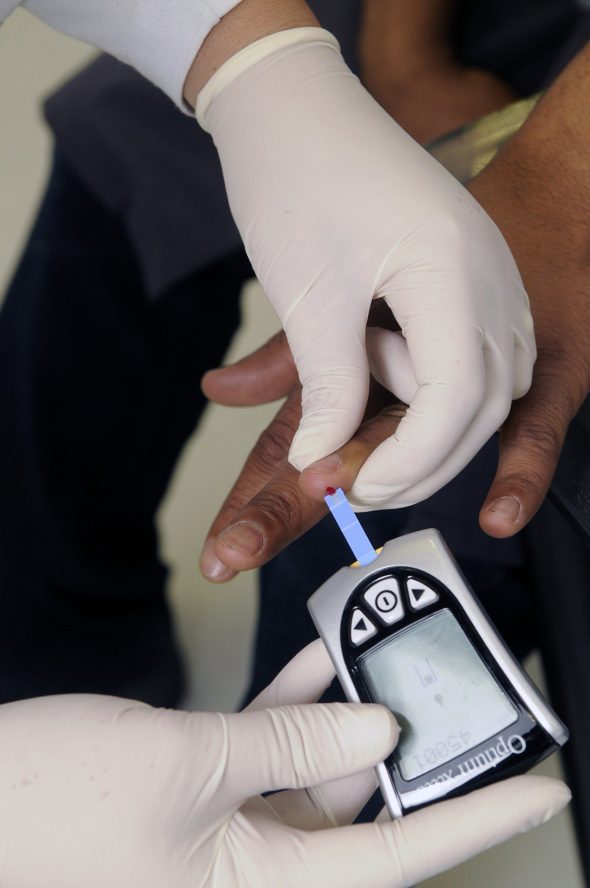
What Can High Cholesterol Do To Your Heart?
What can high cholesterol do to your heart? High cholesterol can cause painful heart disease and heart attacks leading to disability and death. This is just one reason why it is necessary to have health insurance. Read on for more information about the causes of high cholesterol and how to prevent high cholesterol

What Is Cholesterol?
Cholesterol is a waxy compound in the blood that the human body needs to build healthy cells. Cholesterol travels in the blood by attaching itself to proteins called lipoproteins. The cholesterol differs in type depending on what kind of lipoprotein is carrying it – a “good” or “bad” kind.
Low-density lipoprotein (LDL) is "bad" cholesterol. LDL transports cholesterol particles throughout the body. When in high levels, LDL cholesterol builds up in the inner walls of arteries, making them hard and narrow and inhibiting blood flow.
High-density lipoprotein (HDL) is "good" cholesterol. HDL mops up excess LDL cholesterol and takes it back to the liver. Triglycerides are a type of fat in the blood which can increase risks of heart disease when present at high levels.
Why is high cholesterol bad you may wonder? High cholesterol levels of the “bad” kind (LDL) puts you at risk of damaged blood vessels, heart disease, heart attack, and stroke. High cholesterol is not always bad. Having more of the “good” cholesterol HDL is great because it carts away the “bad” LDL cholesterol preventing opportunities for heart disease, heart attack, and stroke. These effects from high cholesterol can not be cured with homeopathic remedies.
High Cholesterol Effects
What can high cholesterol do to your heart? The effects of high cholesterol begin with stiffening of the inner walls of the arteries by forming plaque. Plaque is a combination of cholesterol, fats, body cells’ waste products, calcium, and fibrin. Continued buildup of plaque on the arterial wall clogs and narrows the opening of the arteries. Clogged arteries restrict and slow blood flow and the plaque could also form a blood clot.
The broken plaque and formed blood clots further slow and block blood flow through the arteries. This process is called atherosclerosis. High cholesterol speeds atherosclerosis. So, what can high cholesterol do to your heart? Sustained high cholesterol progressively damages your heart until it bears disease or stops when a heart attack happens. A blood clot blocking the flow of blood to vital body parts like the heart causes a heart attack or the brain, a stroke.
The side effects of high cholesterol include chest pain also known as angina. There can be numbness in the face, arm, or leg, especially on one side of the body. Other side effects are blurred vision, blackened vision, double vision, and sudden severe headache. Ask your doctor about possible remedies including CBD oil.

Causes Of High Cholesterol
Most of the time, it is a person’s lifestyle that causes high cholesterol. An unhealthy diet, insufficient body exercise, obesity, alcohol consumption, and smoking are causal high-risk factors. Often, high ‘bad’ LDL cholesterol happens due to extra production by the body after eating heart unhealthy food. Other lifestyle diseases like diabetes, high blood pressure, and stress can also contribute to high cholesterol.
High blood sugar enhances plaque formation when it damages the inner wall lining arteries and lowers the “good” HDL cholesterol. High blood sugar facilitates the presence of higher levels of dangerous cholesterol called very-low-density lipoprotein (VLDL).
Only in a few people is high cholesterol levels in the blood inherited (genetic) or part of the aging process. In such situations, the “bad” LDL cholesterol can’t be removed from the blood as the liver is producing too much cholesterol. Genetic high cholesterol conditions require medication for effective management.
Testing For High Cholesterol
Since high cholesterol has no symptoms many sufferers are never aware until they fall sick and see the doctor. A blood test is the only way to detect the presence of high cholesterol. Children are usually tested once between the ages of 9 and 11. Teenagers are tested between the ages of 17 and 19 with retesting after every five years into adulthood.
More frequent tests are taken in situations where cholesterol test results are undesirable or there is a family history of high cholesterol conditions. Frequent tests are also taken for those with high-risk conditions such as high blood pressure, diabetes, and those who smoke or drink alcohol. It is extremely important to get tested frequently especially since coronary artery disease can be a result of high cholesterol. Getting coronary artery disease diagnosed can be pretty simple too.
How To Prevent High Cholesterol
Lifestyle change is a good place to look and search for how to prevent high cholesterol. Adopting a regular physical activity, body mass index (BMI) of not more than 30, and a diet that is healthy to the heart prevents high cholesterol. If you are overweight you can try using hemp oil for weight loss. Body exercises, stopping to smoke, and drinking alcohol in moderation are preventive behavior changes that yield results. Knowing your fats helps you to reduce or eliminate the harmful ones like saturated and trans-fats. The American Heart Association (AHA) recommends a daily limit for saturated fat of 5 to 6 percent calories. High cholesterol prevention is possible.